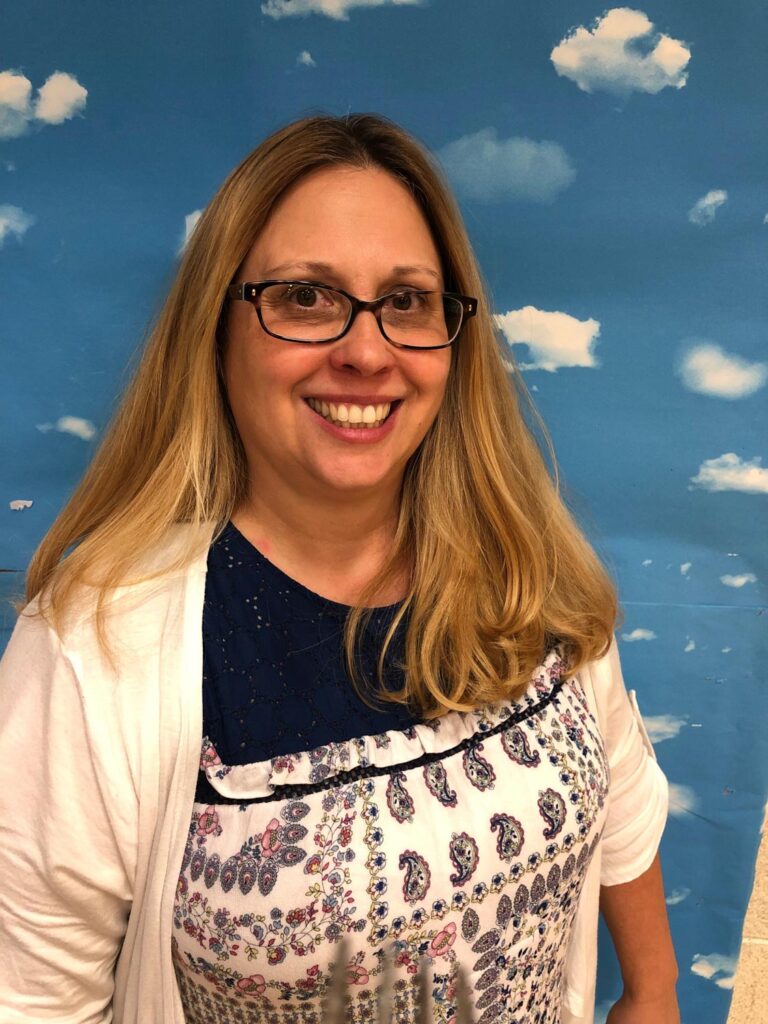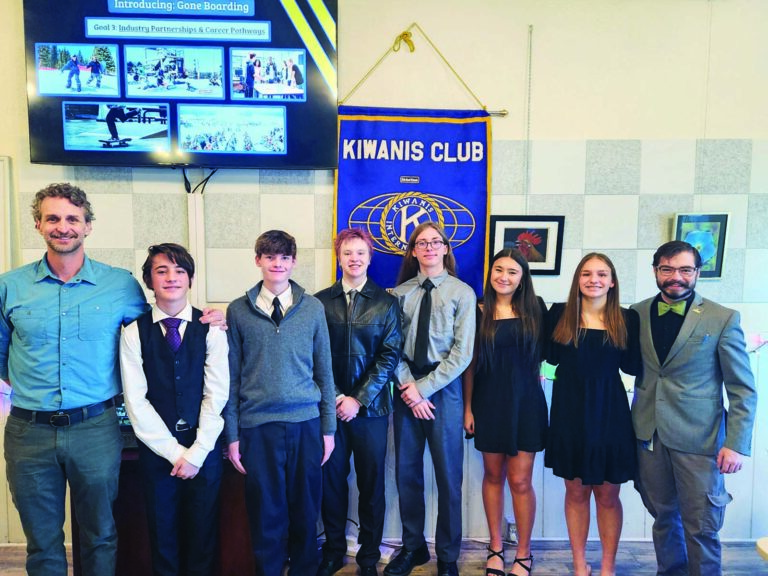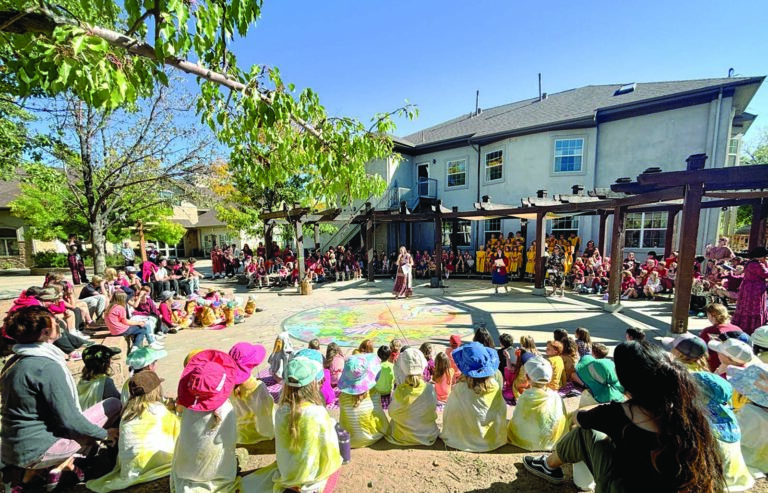“I love teaching because every day there’s something new,” said Janelle Jerman, a music teacher at Prospect Valley Elementary in Wheat Ridge since 2002.
“Teaching the younger kids is great because they love you no matter what,” she said. “And they’re not as self-conscious as older kids. So we can do things like dance and play with props. It’s so much fun.”
She said learning music is not only fun for kids but also helps them learn other things. There’s a quote from Plato on her school page: “I would teach children … music, for the patterns in music are the keys to learning.”
“Music makes patterns tangible,” said Jerman. “We learn better because there’s a predictability to it. Once you figure out the sequence, you unlock a treasure chest – for example, understanding the pattern of the 12-bar blues.”
Her classes include recorder, ukulele, xylophone and world drumming, taught remotely and online as well as in person.
“Every few years I add something new,” Jerman said. “Our newest thing is MIDI keyboards that work with the students’ Chromebooks. The PTA is helping to purchase them for us. We can do composition and mixing. This is all new; we’re learning by trial and error. I’m teaching while learning at the same time.”
Kids in Jerman’s class start out playing the music they like.
“I don’t teach them the music of the old dead white guys. They like pop music, so that’s what we play. Once they get into it, they become more interested in other kinds of music.”
Classes are not performing right now because of continuing COVID-19 concerns.
“We haven’t done concerts for three years. 2020 was insane, with so many regulations and schools opening and closing. 2021 was still difficult since we had so much absenteeism because of COVID cases. We’re getting back to normal but we’re still rebuilding. We’ll never go back to the status quo. We’re learning that we can do things besides live performance together.”
Jerman said the COVID-19 time has challenged her to become more computer savvy.
“I’ve learned to use technology in a different way, which would not have happened without the COVID time. So there’s a benefit to all this.”
She said that for kids, the fallout of COVID-19 is the effects of delayed socializing.
“They are more shy, less willing to extend themselves to new people. They are more willing to let adults make decisions for them because they’ve had fewer opportunities to practice making decisions on their own. But the effects are nowhere near as bad as we read about – nowhere near mental illness.”
Jerman said her route to teaching as a career was circuitous. She got an associate degree at Cottey College in Nevada, Miss., then graduated from the University of Nebraska at Kearney with a bachelor’s in biology. Jerman taught for a year after graduation at a private school “while I figured out what I wanted to do. But I was always active in music,” she said.
The teaching experience was so satisfying that she returned to the University of Nebraska for her second bachelor’s degree and got her K-12 teaching certification. She also earned her master’s in vocal performance at Austin Peay State University in Clarksville, Tenn. Once she came to Wheat Ridge to teach at Prospect Valley, she stuck for 20 years.
“It’s a very stable environment,” Jerman said. “The people in charge trust me to start new programs and classes, and they will often help finance them. So I can reinvent the wheel every so often. I’m very lucky.”
Jerman sang with the Alpine Chorale, a nonprofit group of 60 to 70 singers based in Arvada. She is on hiatus right now because she would need to wear a mask.
“Singing with a mask is too vocally fatiguing, especially after talking all day at school,” she said.
A plus of her long tenure at Prospect Valley is getting to teach the children of her first students.
“It’s so rewarding to see them grow.”
“My favorite thing is seeing a kid persevere to understand something hard and then it clicks, and they take off and fly. It’s amazing.”
She said music is a lifelong skill that gives kids great satisfaction in their lives.
“Learning to express oneself as an artist is personally satisfying. And making music with others feeds your soul. You learn to get along, make decisions together, and most importantly, listen to each other.”
Her challenges come with the territory of working with kids.
“One boy learned ‘Smoke on the Water’ on his recorder and would not stop playing it, over and over. My eye was starting to twitch. I had to ban ‘Smoke on the Water.’”
She said it’s challenging to be the only grown-up in the classroom.
“It’s hard not having another adult in the room to roll your eyes with. No one would believe some of the things the kids do – like licking each other.”
She appreciates the kids’ spontaneity.
“Whatever structure you planned, it won’t go that way. My fourth-graders were playing chords when someone went into a tune from a TikTok song. So we went with it. I have more flexibility than a classroom teacher so I can run with an opportunity or a tangent. There’s no wrong answer in the arts!”






